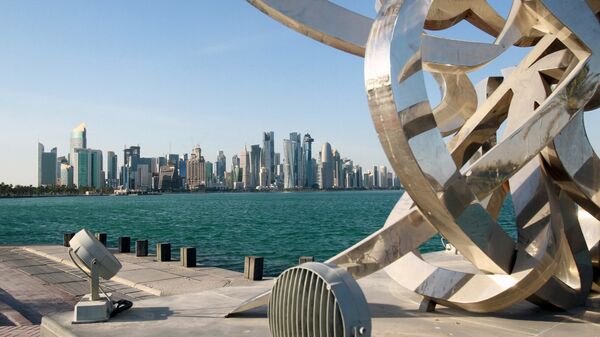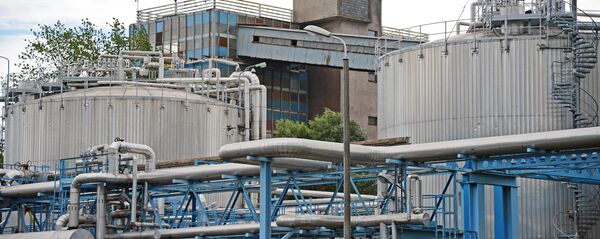"The IMF report was very positive, we are looking at 2.5-3 percent growth levels despite the blockade … If you look at Qatar’s GDP figures, fiscal surplus, current account surplus, they are among the best in the region in the Middle East, despite being blockaded by our neighboring countries. We have proven to be resilient, we have done a fabulous job in terms of protecting our economy. As a matter of fact, our economy has performed better in the blockade in 2019 than before the blockade. Economic indicators are better now than pre-crisis. We are happy about that," Al-Jaida said on the sidelines of the St. Petersburg International Economic Forum (SPIEF).
He stressed that Qatar had been able to prove that it had "a very resilient economy."
READ MORE: Qatar to Use Sovereign Wealth Fund to Diversify Energy Sources - Minister
The International Monetary Fund (IMF) said earlier this week that Qatar’s economic performance improved in 2018. According to the IMF, the country’s GDP growth in 2019 is expected to reach 2.6 percent, up from 2.2 percent in 2018, despite the Saudi-led economic sanctions.
On Investments Beyond GCC
Qatar is interested in investing more in the East, beyond the Gulf Cooperation Council (GCC), Yousuf Al-Jaida told Sputnik.
"We have massive initiatives in terms of opening up our real estate. We are also directing our investments towards the East and establishing new strategic alliances beyond GCC. Russia is among some of these countries, China, India, Japan, South Korea. That’s a strategic step to diversify our economy," Al-Jaida said on the sidelines of the St. Petersburg International Economic Forum (SPIEF).
GCC is an alliance of Saudi Arabia, Kuwait, the United Arab Emirates, Qatar, Bahrain, and Oman. However, Bahrain, Saudi Arabia and the UAE cut diplomatic ties with Qatar in June 2017.
On Qatar's Dependence on LNG
Qatar will remain focused on liquefied natural gas (LNG) as primary energy fuel, Yousuf Al-Jaida, Chief Executive Officer at Qatar Financial Center Authority, told Sputnik on Thursday in an interview.
"Qatar is the largest LNG exporter in the word, as you know we have the third biggest natural reserves in terms of LNG. LNG is our focus for the future, we diversified away from oil. Oil represents 20 percent of our energy exports, but the focus will remain on LNG in the near future for a very, very long time," Al-Jaida said on the sidelines of the St. Petersburg International Economic Forum (SPIEF).
"It seems the rest of the world is aligned in seeing LNG as the most prominent energy source in the future," Al-Jaida said.
SPIEF began on Thursday and will last through Saturday. Rossiya Segodnya International Information Agency is an official media partner of the forum.



